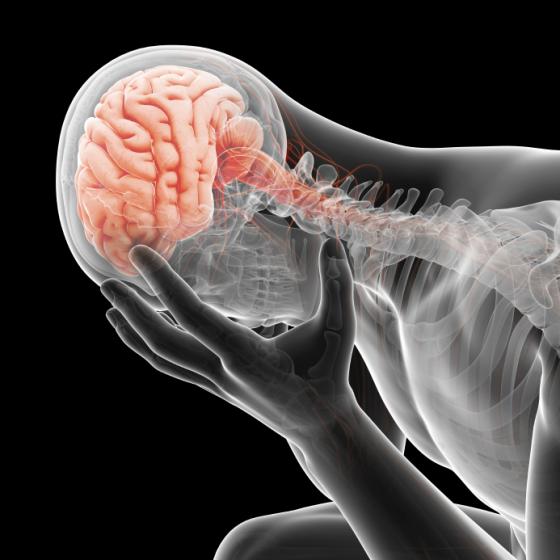
The new study is the first to find definitive evidence of inflammation in the brain of depressed patients.
Inflammation is the immune system's natural response to infection or disease.
The body often uses inflammation to protect itself, such as when an ankle is sprained and becomes inflamed, and the same principle also applies to the brain.
However, too much inflammation is unhelpful and can be damaging.
Increasingly, evidence is suggesting that inflammation may drive some depressive symptoms, such as low mood, loss of appetite and reduced ability to sleep.
What the new study set out to investigate was whether inflammation is a driver of clinical depression independent of other physical illness.
Researchers from the Centre for Addiction and Mental Health's (CAMH) Campbell Family Mental Health Research Institute in Toronto, Canada, used positron emission tomography (PET) to scan the brains of 20 patients with depression and 20 healthy control participants.
In particular, the team closely measured the activation of microglia - immune cells that play a key role in the brain's inflammatory response
The PET scans showed significant inflammation in the brains of the people with depression, and the inflammation was most severe among the participants with the most severe depression. The brains of people who were experiencing clinical depression exhibited an inflammatory increase of 30%.
Previous studies have examined markers of inflammation in the blood of depressed people, in an attempt to solve the "chicken or egg" debate of whether inflammation is a consequence of or contributor to major depression.
For instance, in 2012, a study conducted by Duke University Medical Center researchers and published in Biological Psychiatry found an association between the number of cumulative depressive episodes experienced by study participants and increased levels of an inflammation marker in their blood called C-reactive protein (CRP).
The results by Duke University Medical Center researchers support a pathway from childhood depression to increased levels of CRP, even after accounting for other health-related behaviors that are known to influence inflammation. That study found no support for the pathway from CRP to increased risk for depression.
The Duke team concluded that depression, therefore, is more likely to contribute to inflammation in the body as opposed to arising as a consequence of inflammation.
Even though, there is no access to data on whether the patients in the CAMH study exhibited brain inflammation prior to developing depression or after symptom onset.
However, the CAMH researchers claim that their study is the first to find definitive evidence of inflammation in the brains of depressed patients.
Should future depression therapies target inflammation?
This finding provides the most compelling evidence to date of brain inflammation during a major depressive episode.
"This discovery has important implications for developing new treatments for a significant group of people who suffer from depression. It provides a potential new target to either reverse the brain inflammation or shift to a more positive repair role, with the idea that it would alleviate symptoms."
Severe depression affects 4% of the general population. However, more than half of people with major depression do not respond to antidepressants.The research team suggests that future studies should investigate the possible impact of anti-inflammatory drugs on depression symptoms.
Depression is a complex illness and we know that it takes more than one biological change to tip someone into an episode. But researchers now believe that inflammation in the brain is one of these changes and that's an important step forward.
References:
1. Role of translocator protein density, a marker of neuroinflammation, in the brain during major depressive episodes, Jeffrey H. Meyer, et al., JAMA Psych, doi:10.1001/jamapsychiatry.2014.2427, published online 28 January 2015, abstract.
2. Additional source: Centre for Addiction and Mental Health news release, accessed 29 January 2015.
No comments:
Post a Comment